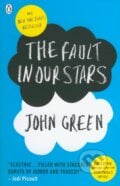The work we do brings us meaning, moulds our values, determines our social status and dictates how we spend most of our time. But this wasn't always the case: for 95% of our species' history, work held a radically different importance. How, then, did work become the central organisational principle of our societies? How did it transform our bodies, our environments, our views on equality and our sense of time? And why, in a time of material abundance, are we working more than ever before? Leading anthropologist James Suzman charts a revolutionary new history of humankind through the prism of work, from the origins of life on Earth to our ever-more automated present, challenging some of our deepest assumptions about who we are.















